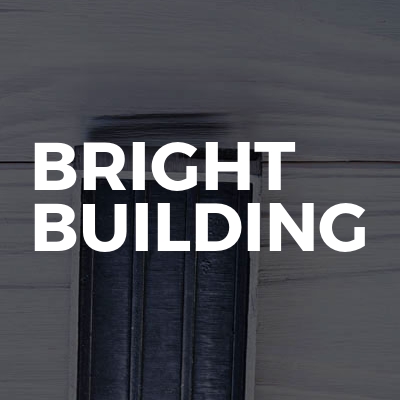Introduction to Block Paving in Hoddesdon
Block paving in Hoddesdon is a popular choice for homeowners and businesses looking to enhance the aesthetic appeal and functionality of their outdoor spaces. This versatile and durable paving solution offers a range of benefits, from improving curb appeal to providing a robust surface for driveways, patios, and pathways. In this article, we'll explore the ins and outs of block paving, offering insights into its advantages, installation process, maintenance tips, and more.
The Appeal of Block Paving
Block paving is renowned for its aesthetic versatility and durability. It comes in a variety of colours, shapes, and patterns, allowing for customised designs that can complement any property style. Whether you're aiming for a traditional look or a modern vibe, block paving can be tailored to meet your vision. Moreover, its robust nature makes it ideal for high-traffic areas, ensuring longevity and minimal maintenance.
Customisation Options
One of the standout features of block paving is the ability to customise. You can choose from a plethora of colours, ranging from earthy tones to vibrant hues, and select patterns that range from simple to intricate. This flexibility allows homeowners in Hoddesdon to create unique designs that reflect their personal style and enhance their property's overall appearance.
Durability and Longevity
Block paving is designed to withstand the test of time. Made from materials such as concrete, clay, or natural stone, these blocks are built to endure heavy loads and resist wear and tear. This makes them an excellent choice for driveways and other areas that experience frequent use. With proper installation and maintenance, block paving can last for decades, offering a cost-effective solution in the long run.
Understanding the Installation Process
The installation of block paving involves several key steps, each crucial to ensuring a durable and aesthetically pleasing result. While it might seem like a daunting task, understanding the process can help you appreciate the craftsmanship involved and make informed decisions if you're considering a DIY approach or hiring professionals in Hoddesdon.
Site Preparation
Before laying the blocks, the site must be properly prepared. This involves clearing the area of any debris, vegetation, or existing structures. The ground is then excavated to a suitable depth, typically around 150-200mm, to accommodate the sub-base and paving blocks. Proper drainage is also considered at this stage to prevent water accumulation.
Sub-Base Installation
The sub-base is a critical component of block paving, providing stability and support. A layer of crushed stone or gravel is spread evenly across the excavated area and compacted using a vibrating plate compactor. This ensures a solid foundation that can withstand the weight of vehicles and foot traffic.
Laying the Blocks
Once the sub-base is in place, a layer of sharp sand is spread over it to create a smooth surface for laying the blocks. The blocks are then laid in the desired pattern, starting from a corner or edge and working outwards. Spacers are used to maintain consistent gaps between the blocks, allowing for jointing sand to be brushed in later.
Finishing Touches
After the blocks are laid, jointing sand is brushed into the gaps to lock them in place and prevent movement. The entire surface is then compacted again to ensure stability. Finally, any excess sand is swept away, and the area is inspected for any adjustments or repairs needed before the project is considered complete.
Maintenance Tips for Block Paving
Maintaining block paving in Hoddesdon is relatively straightforward, but regular care can significantly extend its lifespan and keep it looking pristine. Here are some essential maintenance tips to ensure your block paving remains in top condition.
Regular Cleaning
Keeping your block paving clean is crucial for maintaining its appearance and preventing the growth of weeds and moss. Regularly sweep the surface to remove debris and use a pressure washer to clean stubborn dirt and stains. Be cautious with the pressure setting to avoid damaging the blocks or dislodging the jointing sand.
Weed and Moss Control
Weeds and moss can detract from the beauty of your block paving and cause damage over time. Use a weed killer or a natural solution like vinegar to treat any growth. For moss, a stiff brush or a specialised moss remover can be effective. Regularly inspect the paving for any signs of growth and address them promptly.
Replenishing Jointing Sand
Over time, jointing sand can be washed away by rain or removed during cleaning. It's important to replenish this sand to maintain the stability of the paving. Simply brush new sand into the joints and compact it to ensure a secure fit. This should be done annually or as needed.
Repairing Damaged Blocks
Despite its durability, block paving can occasionally suffer damage from heavy impacts or shifting ground. If you notice any cracked or loose blocks, it's important to address them promptly to prevent further issues. Damaged blocks can be removed and replaced with new ones, ensuring the integrity of the paving remains intact.
Choosing the Right Materials for Block Paving
Selecting the right materials for your block paving project in Hoddesdon is crucial for achieving the desired look and ensuring durability. Different materials offer varying benefits, so it's important to consider your specific needs and preferences.
Concrete Blocks
Concrete blocks are a popular choice due to their affordability and versatility. They come in a wide range of colours and shapes, allowing for creative designs. Concrete is also durable and can withstand heavy loads, making it suitable for driveways and high-traffic areas.
Clay Pavers
Clay pavers offer a more traditional and timeless look. They are known for their rich, natural colours that don't fade over time. Clay is also highly durable and resistant to staining, making it an excellent choice for patios and pathways.
Natural Stone
For a premium and unique appearance, natural stone is an excellent option. Each stone has its own distinct texture and colour, adding character to your paving. While more expensive, natural stone is incredibly durable and can last a lifetime with proper care.
Permeable Paving
Permeable paving is an environmentally friendly option that allows water to drain through the surface, reducing runoff and preventing flooding. This is particularly beneficial in areas prone to heavy rainfall. Permeable paving is available in various materials, including concrete and clay, offering both functionality and aesthetic appeal.
Cost Considerations for Block Paving
Understanding the cost factors associated with block paving in Hoddesdon can help you plan your project effectively and avoid unexpected expenses. Several elements influence the overall cost, from materials to labour and additional features.
Material Costs
The cost of materials is a significant factor in block paving projects. Concrete blocks are generally the most affordable option, while natural stone tends to be more expensive. The size of the area to be paved and the complexity of the design will also impact material costs.
Labour Costs
Labour costs can vary depending on the complexity of the project and the experience of the contractors. Hiring professionals ensures a high-quality finish and can save time and effort. However, if you're confident in your DIY skills, you can reduce costs by undertaking the installation yourself.
Additional Features
Incorporating additional features such as edging, lighting, or drainage systems can enhance the functionality and appearance of your block paving but will also increase the overall cost. Consider your budget and priorities when deciding on these extras.
Long-Term Value
While the initial cost of block paving may seem high, it's important to consider the long-term value. Its durability and low maintenance requirements make it a cost-effective choice over time. Additionally, well-maintained block paving can increase the value of your property, providing a return on investment.
Environmental Impact of Block Paving
As environmental concerns continue to grow, it's important to consider the impact of block paving on the environment. Fortunately, there are several ways to make your paving project more sustainable and eco-friendly.
Sustainable Materials
Choosing sustainable materials is a key step in reducing the environmental impact of block paving. Opt for locally sourced materials to minimise transportation emissions and consider using recycled or reclaimed blocks. Permeable paving options also contribute to sustainability by allowing water to drain naturally.
Eco-Friendly Installation Practices
Implementing eco-friendly practices during installation can further reduce environmental impact. This includes minimising waste by accurately measuring materials, using energy-efficient equipment, and recycling any leftover materials. Additionally, consider incorporating green spaces or planting areas within the paving design to promote biodiversity.
Water Management
Effective water management is crucial for reducing the environmental impact of block paving. Permeable paving systems help manage stormwater by allowing it to seep into the ground, reducing runoff and preventing flooding. This not only benefits the environment but also protects your property from water damage.
Long-Term Sustainability
Maintaining your block paving sustainably involves regular care and avoiding harsh chemicals that can harm the environment. Use natural cleaning solutions and address any issues promptly to prevent the need for extensive repairs. By adopting sustainable practices, you can enjoy the benefits of block paving while minimising its environmental footprint.
Frequently Asked Questions
- What is block paving? Block paving is a type of decorative paving made from individual blocks or bricks, commonly used for driveways, patios, and pathways.
- How long does block paving last? With proper installation and maintenance, block paving can last for several decades, often up to 20-30 years or more.
- Can block paving be installed on a slope? Yes, block paving can be installed on a slope, but it requires careful planning and installation to ensure stability and proper drainage.
- Is block paving permeable? Some types of block paving are permeable, allowing water to drain through the surface. This is beneficial for reducing runoff and preventing flooding.
- How do I clean block paving? Regular sweeping and occasional pressure washing can keep block paving clean. Avoid using high-pressure settings to prevent damage.
- Can I install block paving myself? While DIY installation is possible, it requires careful planning and skill. Hiring professionals can ensure a high-quality finish and save time.
Final Thoughts on Block Paving in Hoddesdon
Block paving in Hoddesdon offers a versatile and durable solution for enhancing outdoor spaces. With a range of customisation options, materials, and sustainable practices, it provides both aesthetic appeal and functionality. Whether you're considering a new driveway, patio, or pathway, block paving is a worthwhile investment that can add value and beauty to your property for years to come. By understanding the installation process, maintenance requirements, and cost considerations, you can make informed decisions and enjoy the benefits of block paving with confidence.







